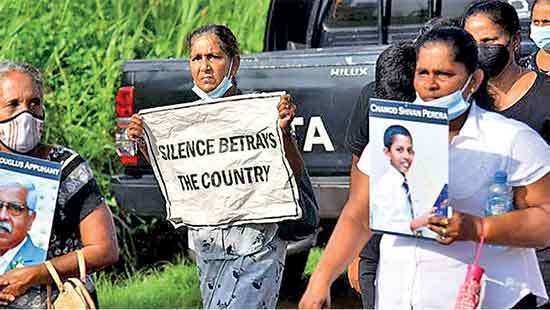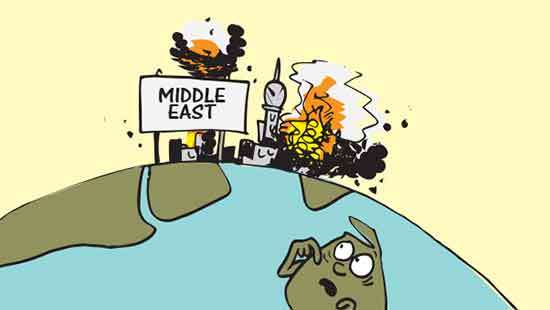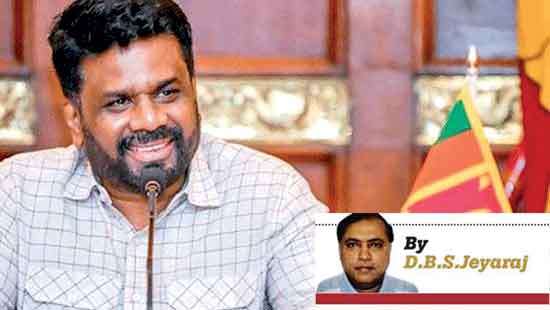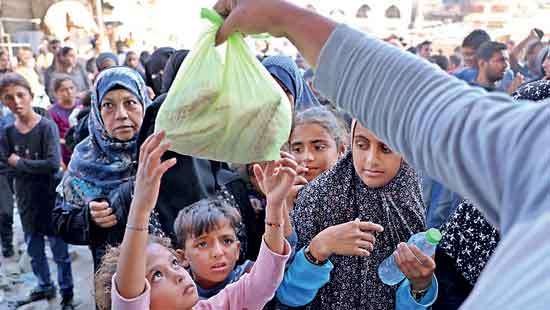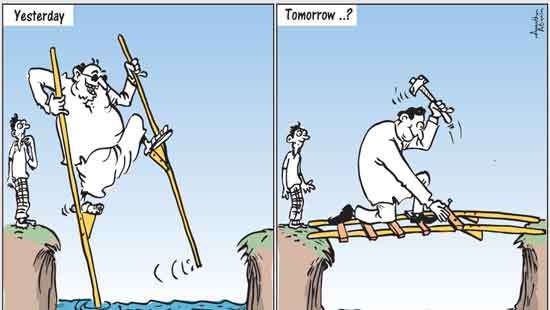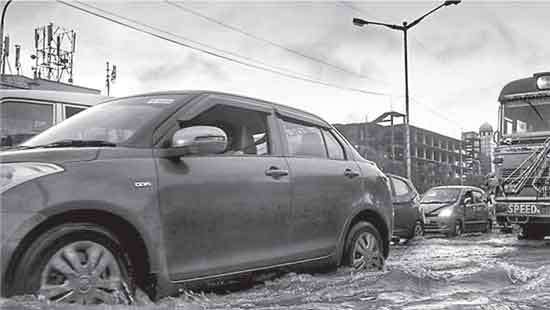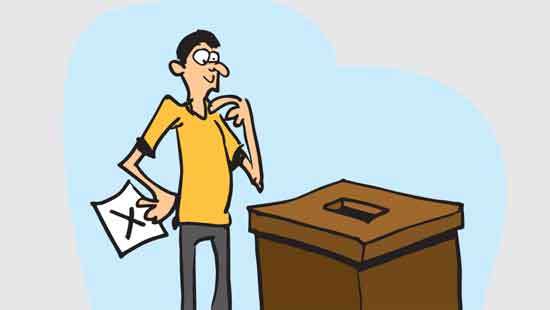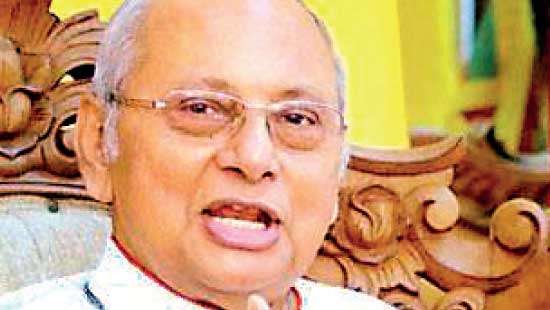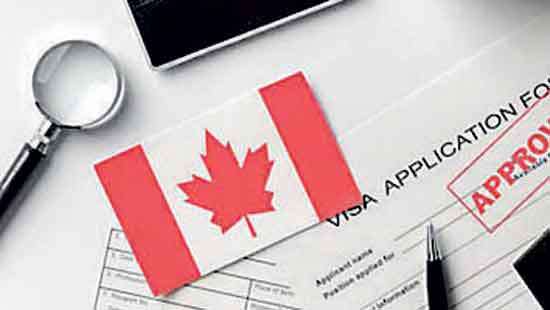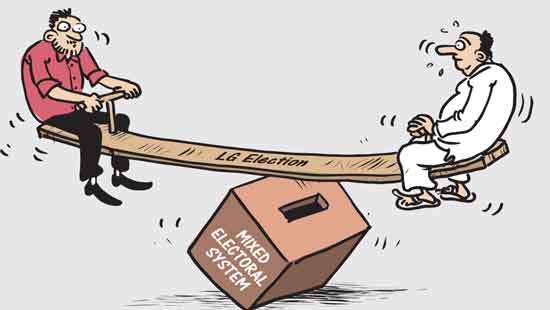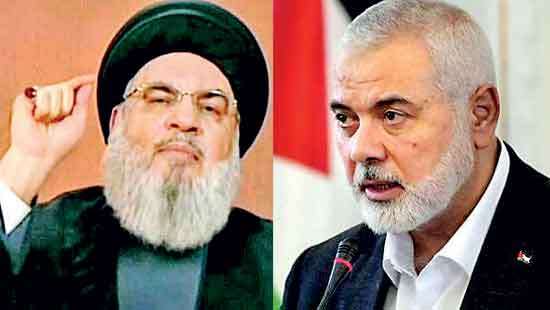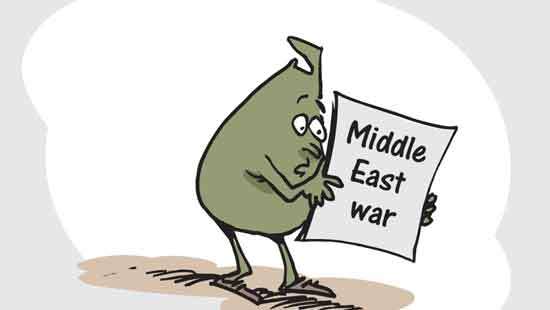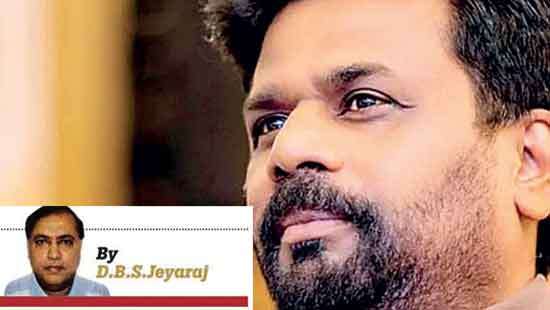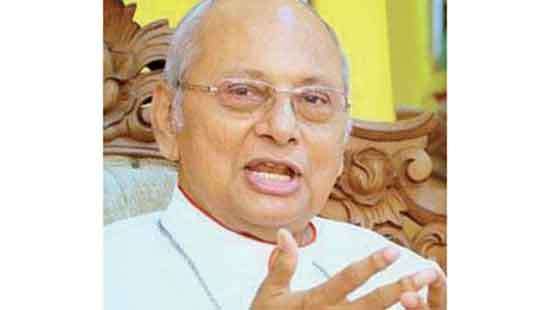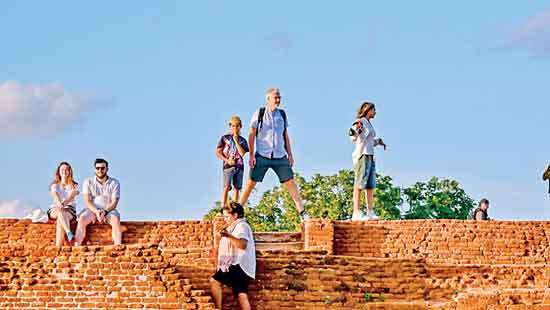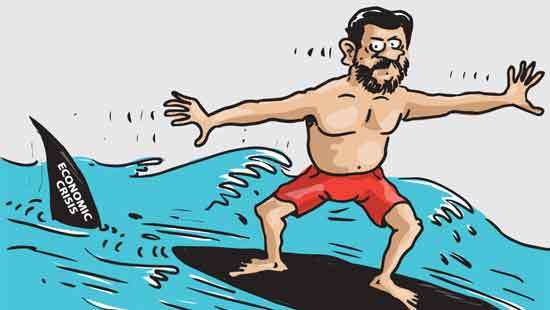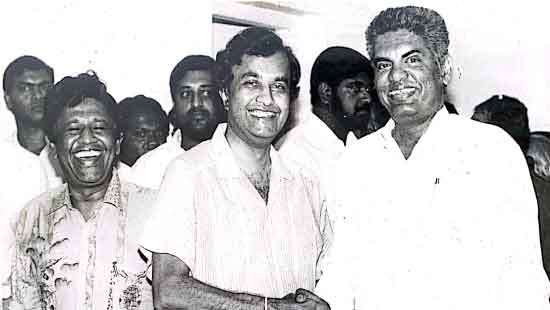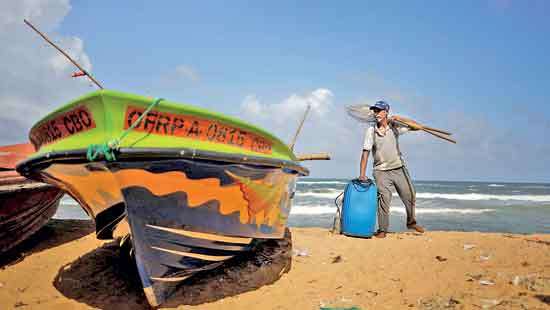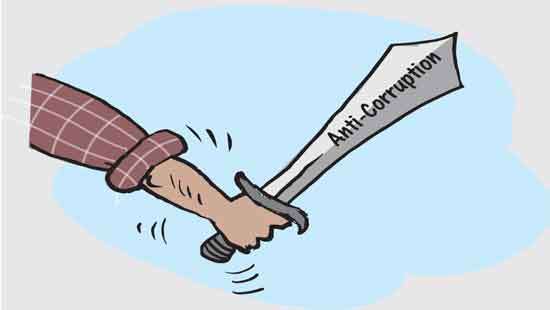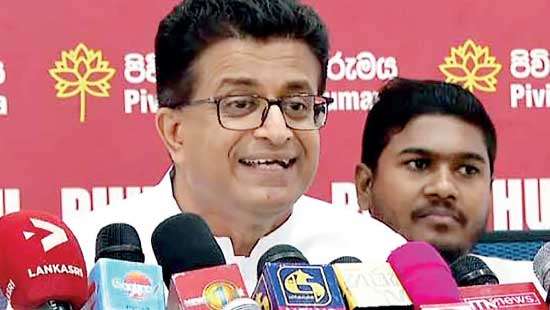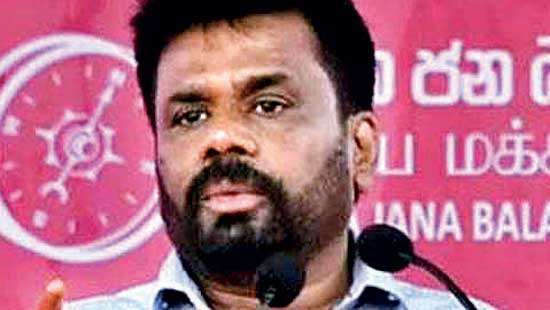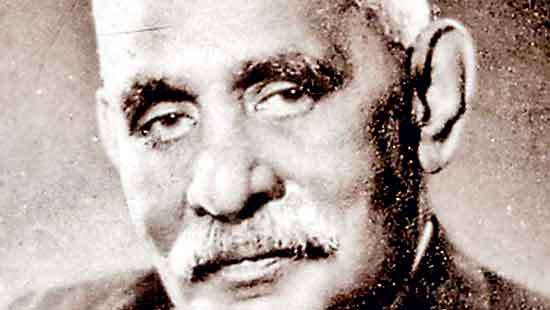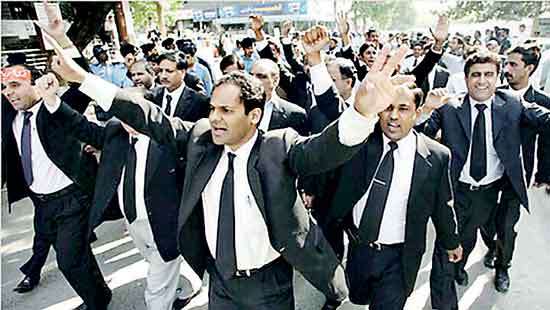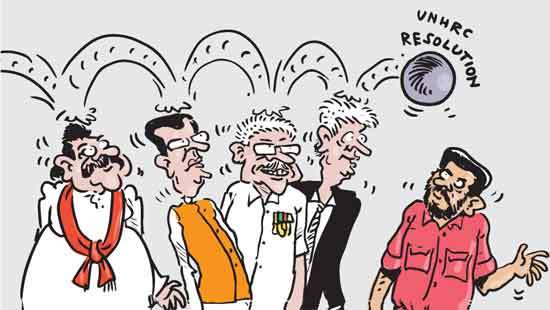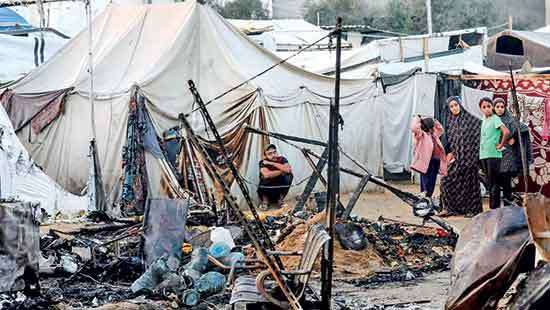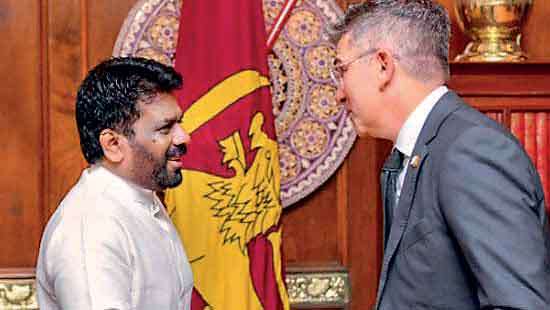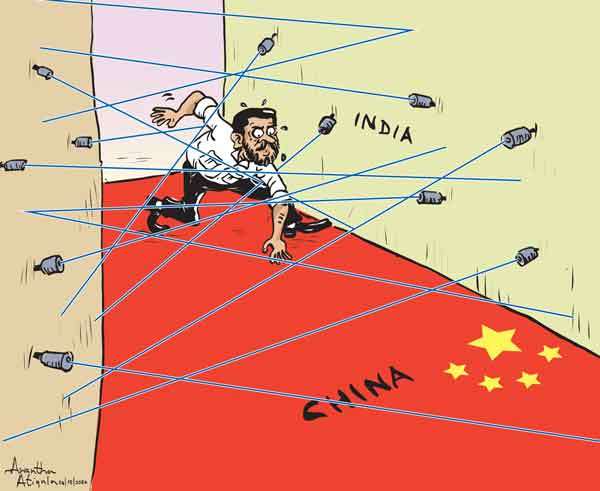Opinion
Who pays for these committees and commissions?
02 Nov 2024
 1
1
The attempt by the leader of the Pivithuru Hela Urumaya Udaya Gammanpila to score brownie points from the voters by embarrassing the government using the two committees appointed by former President Ranil Wickremesinghe on the terrorist attacks launched on the Easter Sunday in 2019 seems to have become a damp squib.
Let not red herrings draw attention away from problems
02 Nov 2024
 4
4
It has been less than six weeks since the people brought new leaders to the political scene of this country. The fact that a once outlawed political entity has won the presidential hustings seems to have set the cat among the mice.
How Anura Scented the Sweet Smell of Success in 2024 Presidential Race
02 Nov 2024
 0
0
The Presidential election of November 2019 and the Parliamentary elections of August 2020 proved to be huge disappointments to the Janatha Vimukthi Peramuna (JVP) and its leader Anura Kumara Dissanayake (AKD).
Problems hang fire while government ponders elections
30 Oct 2024
 2
2
The new JVP/NPP government has been in power for less than two months. They are faced with mounting problems which are not of their making. In Opposition the president and his political party, which now rules our country condemned the former president Wickremesinghe for ignoring the plight of the masses.
Threat of Islamist extremism is real, don’t play politics with it
30 Oct 2024
 3
3
For the last couple of years since the tragic Easter Sunday attacks, some sections of the Catholic church led by Cardinal Malcolm Ranjith and civil society groups have been wanting us to believe that nine Islamist suicide terrorists, having pledged allegiance to the transnational Salafi Jihad terrorist group, Islamic State, blew themselves up killing 250 locals church goers and foreign tourists in order to bring to power an ardent Sinhala Buddhis
Elpitiya, a wakeup call for amending LG Election Act
29 Oct 2024
 2
2
The results of Saturday’s Elpitiya Pradeshiya Sabha election cannot be taken as an indication of the results of the forthcoming Parliamentary election scheduled for November 14, as some suggest, since the two elections are different in several aspects.
Israel’s espionage machine – cyber intelligence, moles and money
28 Oct 2024
 0
0
Israel pulled off two stunning espionage coups in recent months – the killing of Hamas’s top political leader Ismail Haniye in the Iranian capital Tehran, followed by the killing of Hassan Nasrallah, head of Hezbollah militant organisation in Lebanon.
Anura Dissanayake and the Formation of the National People’s Power
26 Oct 2024
 0
0
This is the fourth part of an extended article focusing on Sri Lanka’s newly elected President Anura Kumara Dissanayake. In the first part of this article, the early years of Anura’s eventful life were delved into in some detail. In the second part, AKD’s steady growth as a political leader within the Janatha Vimukthi Peramuna (JVP) was related to some extent. In the third part, Anura’s rise to the leadership position of the JVP was recounted.
Terror attack turned into a political foot ball
26 Oct 2024
 3
3
The can of worms that was opened by the Pivithuru Hela Urumaya (PHU) leader, Parliamentarian Udaya Gammanpila with regard to the Easter Sunday attacks seems to have been overshadowed by the US travel advisory due to a purported plan by certain individuals to launch a similar attack on Israeli tourists in Sri Lanka.
Can government overcome problems of impunity and arm twisting
26 Oct 2024
 0
0
When ordinary citizens are brought before the law it is seen as a stigma, and shame. Times out of number, when officials are caught out -either embezzling funds, accepting bribes or any other offences; when produced before the court, these individuals tend to cover their faces in shame.
Continuing investigations and reports into Easter Sunday killings
23 Oct 2024
 0
0
It is over five years since the Easter Sunday terrorist attacks which left over 270 persons dead. The families of the victims in that mass killing still remain traumatised. There has as yet, been no closure to their sufferings as we Lankan’s as a whole and Catholics in particular have no idea as to who master-minded the evil deed.
The never ending clash with the UNHRC- EDITORIAL
22 Oct 2024
 2
2
The new government of President Anura Kumara Dissanayake (AKD) is encountering or is going to encounter several dilemmas some of which threaten its very survival, despite the ruling National People’s Power (NPP) or the main constituent of it, Janatha Vimukthi Peramuna (JVP) having not been responsible for them.
World Bank’s Development Trap for Sri Lanka
21 Oct 2024
 0
0
The Western establishment has many ways to corner developing countries like Sri Lanka and set their economic trajectory in the interests of global capital. I have written extensively about the role of the IMF in trapping Sri Lanka with financialised commercial borrowing and austerity measures. In this column, I address the other powerful twin from Washington, the World Bank, and its economic policy-making role in Sri Lanka.

Auction yields slump for third consecutive week
21 Oct 2024
 0
0

Moody’s raises Sri Lanka’s rating
21 Oct 2024
 0
0

ASPI crosses the 15,000 mark for the first time
21 Oct 2024
 0
0

Moody’s raises Sri Lanka’s rating
21 Oct 2024
 0
0

Wayside bandits haunt people travelling Malabe-Ambathale road in Colombo
21 Oct 2024
 0
0

Probe underway as child dies after surgery at J’Pura hospital
21 Oct 2024
 0
0

Over 370 jumbos perish in 2024
21 Oct 2024
 0
0


